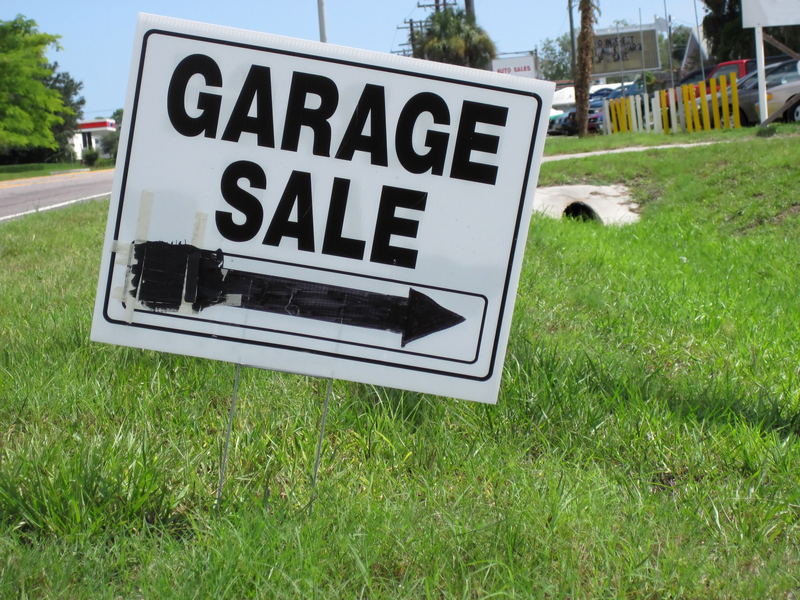Stay Compliant: Proper Practices for Removing Waste
Posted on 31/08/2025
Waste removal is an essential and often overlooked aspect of maintaining a clean and safe environment. From household trash to hazardous materials, proper waste removal ensures the well-being of both individuals and the planet. However, with an increasing focus on environmental sustainability and regulations, it is crucial for businesses and individuals alike to stay compliant in their waste removal practices.
In this article, we will explore the importance of staying compliant when it comes to removing waste and provide tips on how to do so effectively.
The Environmental Impact of Improper Waste Removal
Improper disposal of waste can have a significant impact on the environment. When left untreated or disposed of in an incorrect manner, waste can pollute our land, waterways, and air. This contamination not only affects the ecosystem but also poses a threat to human health.
For instance, improper disposal of hazardous waste such as chemicals, oils, and batteries can lead to the release of toxic substances into the environment. These substances can seep into the soil and contaminate groundwater sources, making it unsafe for consumption. Similarly, burning waste releases harmful gases into the atmosphere, contributing to air pollution and climate change.

The Importance of Compliance
Compliance refers to following all relevant laws, regulations, and standards in waste management. These regulations are put in place to ensure the proper handling, transportation, and disposal of different types of waste. Compliance not only protects the environment but also ensures the safety and well-being of workers involved in waste management processes.
Moreover, non-compliance can result in hefty fines and penalties for businesses, leading to financial losses. It can also damage a company's reputation and negatively affect its relationship with stakeholders. Therefore, staying compliant is crucial for both ethical and legal reasons.
Tips for Proper Waste Removal
To ensure compliance with waste removal regulations, here are some tips that individuals and businesses should keep in mind:
1. Classify and Segregate Waste
The first step to proper waste disposal is to identify and classify the type of waste being generated. Different types of waste have specific regulations for disposal, storage, and transportation. By properly segregating waste, you can prevent cross-contamination and avoid costly mistakes.
2. Follow Proper Packaging Guidelines
Improper packaging can lead to spills and leaks during transportation, posing a threat to workers and the environment. Follow packaging guidelines provided by local authorities or waste management companies to ensure safe handling and transportation of waste.
3. Use Registered Waste Disposal Services
It is crucial to use registered and licensed waste disposal services that comply with all regulations. These services have the necessary equipment, training, and expertise to handle different types of waste safely. They also provide documentation for proper disposal, which is essential in case of any regulatory audits.
4. Keep Detailed Records
Keeping detailed records of waste generation, disposal, and transportation is crucial for compliance. This information can be used to track the amount and types of waste produced, ensuring it is properly managed at all stages.
The Pros and Cons of Compliance
Compliance with waste removal regulations has both pros and cons.
Pros:
- Environmental protection: Compliance ensures that waste is handled in an environmentally sustainable manner, reducing its impact on the ecosystem.
- Health and safety: Proper handling and disposal of hazardous waste protect the health and safety of workers and individuals.
- Legal protection: Compliance protects businesses from fines, penalties, and legal action for non-compliance.
- Reputation: Compliant businesses are perceived as ethical and responsible by customers, investors, and other stakeholders.
Cons:
- Cost: Proper waste removal can be expensive, especially for businesses that produce large amounts of waste. However, the cost of non-compliance can be even more significant.
- Time-consuming: Complying with regulations may require companies to invest time in training and proper waste management procedures. However, this effort pays off in the long run.

Takeaways
Waste removal is an essential aspect of maintaining a clean and safe environment. Compliance with regulations is crucial for protecting the environment, individuals, and businesses. By following proper waste management practices, we can all contribute towards a sustainable future.
Conclusion
In conclusion, staying compliant with waste removal practices is essential for protecting the environment and complying with legal obligations. By classifying and segregating waste, following packaging guidelines, using registered disposal services, and keeping detailed records, we can all ensure proper waste management. Let us all do our part in staying compliant and preserving our planet for future generations.
Latest Posts
DIY Paper Recycling at Home in 6 Steps
Advance Your Recycling Approach
Plant-Based Plastics: Future Innovations






